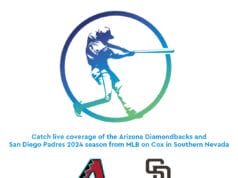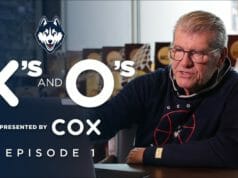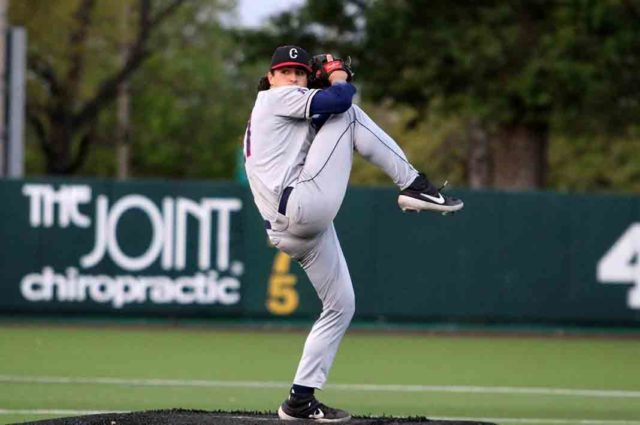
Mason Feole knows he can take his time, but not too much.
A standout left-handed pitcher at The Prout School who departed the University of Connecticut as the baseball program’s all-time strikeout leader (278 in 260.1 innings), Feole underwent Tommy John surgery not long after the San Diego Padres selected him in the 11th round of the 2019 Major League Baseball Draft.
A long, slow rehab process ensued. There was, however, light that existed at the end of the proverbial tunnel. Actually, there was plenty of Arizona sunshine. Not long after going under the knife, Feole relocated in order to be closer to the Padres’ spring training facility.
“I got to go home periodically for Thanksgiving and Christmas,” said Feole.
When spring training began, Feole dealt with a new perspective. The road to a full recovery was continuing to move in the right direction. What wasn’t in the cards was breaking camp with a minor-league affiliate. That day will eventually come. In the interim, it was about staying true to what was a predetermined course long before the coronavirus turned the sports world upside down.
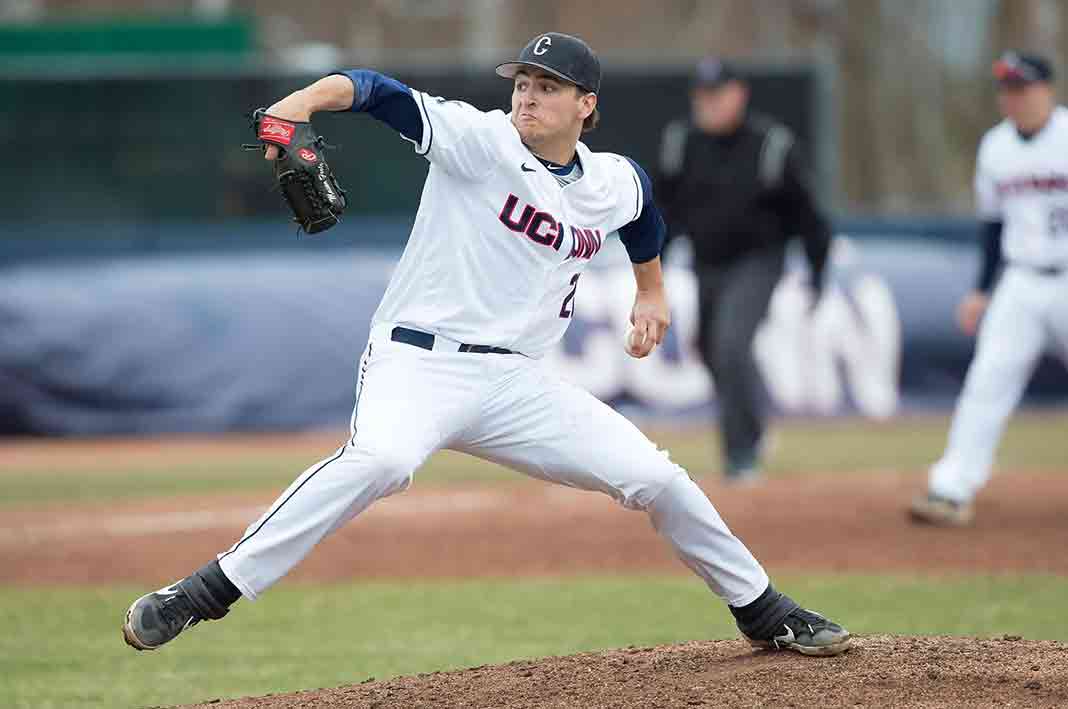
“It’s about getting my body back in the right position to move correctly and throw at a healthy and effective way,” said Feole.
The pandemic has turned a lot of lives upside down with Feole’s response akin to grace under fire. In many ways, things are working out in his favor. The odds of some semblance of an actual minor-league season taking place seem to diminish with each passing day. Never say never, but as far as the prospect of Feole taking the mound for a late-season push … right now, there are no set-in-stone timetables for him to be concerned with.
Hence, Feole can afford to take things slowly.
“There’s nothing to rush back for. Mentally, I see that as a big positive,” said Feole, who’s back home in Rhode Island. “I have a few months to focus on my own personal development and growth. It’s a bit of an advantage and I hate to say that because of what’s going on in the world, but to not have to push a little too hard when I don’t have to … I don’t know if there ever was a time that baseball players, whether they’re in high school, college, or the pros, have had this much amount of time to focus on their own progression.
“You try not to think about those checkpoints … if I can get in a game,” Feole added. “Right now, not having a game to prepare for is extremely freeing. I can get back to being strong and really healthy without trying to worry about making a team this year.”
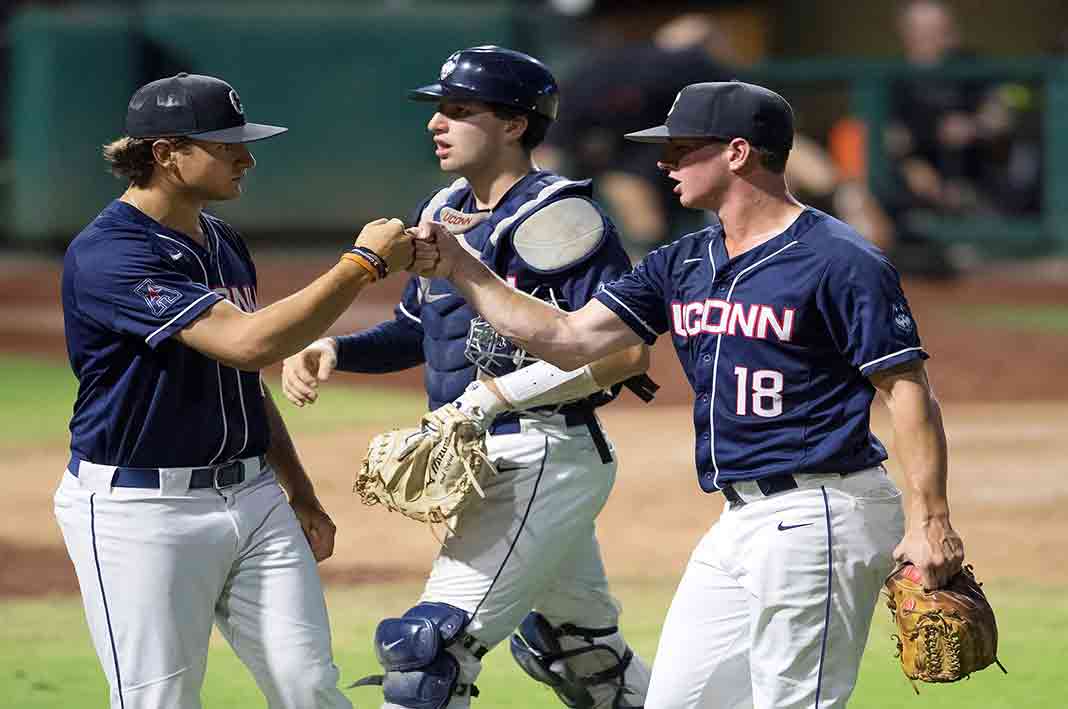
For Feole, the origins behind the Great American Sports Blackout of 2020 paralleled that with attempting to see through the fog. Life that had become second nature in Peoria, Ariz. was dealt a knee-buckling curveball after MLB announced on March 12 that spring training 2020 had been suspended indefinitely.
“It was pretty crazy just because we didn’t know what was next. There was a big question mark on what tomorrow was going to look like,” said Feole. “My rehab group is pretty small. We were in the training room early in the morning to get our work in before going out to throw. All of a sudden, everyone stopped in their tracks. Everyone was glued to the TV monitors.”
Feole finished out the day as normal. The next day (March 13), all of the minor leaguers in the San Diego system were gathered together.
“Originally, we thought spring training would continue on as normal – at least on the minor league side – with guidelines in accordance with social distancing,” said Feole. “I guess the organization decided differently. They basically sent everyone home. Guys were filling up trash bags with their belongings and trying to book flights.”
Rehabbers like Feole were allowed to remain in Arizona. He continued to stay in the apartment that distance-wise was a long fly ball away from the Peoria complex.
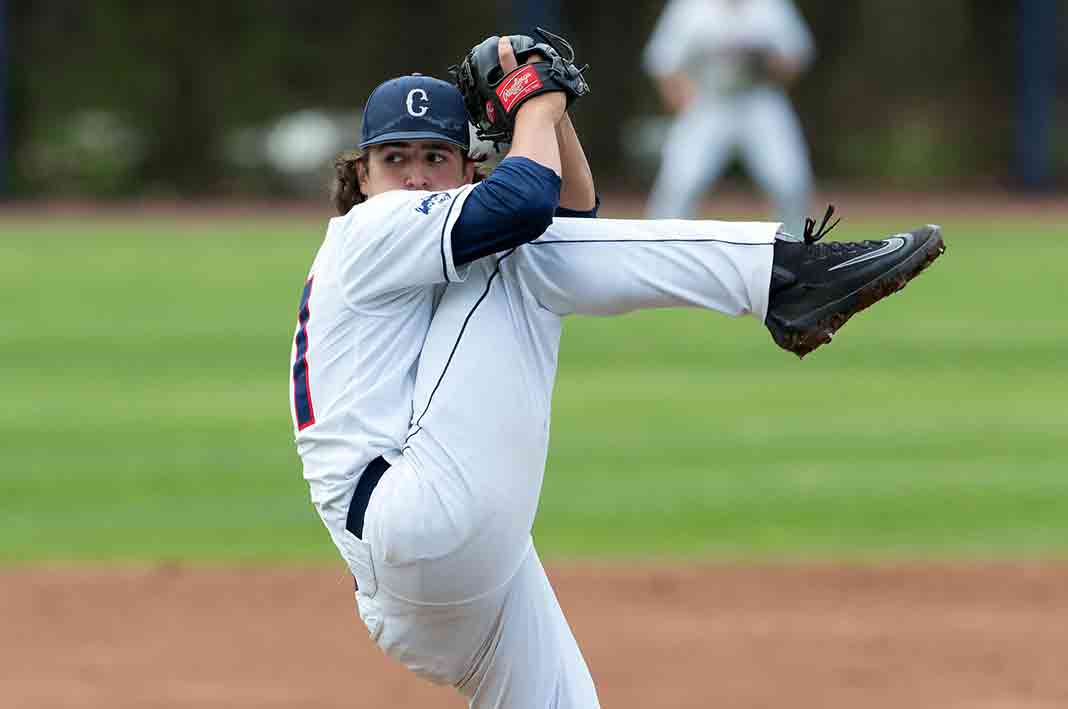
“I thought it would be more beneficial for me to stay in the nice weather and be able to throw outside,” he said. “It was about making sure to gather more information before getting on a flight or driving across the country.”
During the week the Padres’ facility was closed, Feole transformed his apartment into a home gym … exercise bands, PlyoCare balls, and weights.
“We played the wait-and-see game,” said Feole, “but eventually the complex was reopened.”
Before he could enter, Feole was checked to make sure he was fine health-wise. Once everything checked out, it was about making sure to stand six feet apart and wiping down the weights after each set.
“We definitely followed some hardcore measures to make sure everyone stayed healthy,” said Feole.
March turned to April with no end in sight as to when baseball could resume. By early May, Feole decided to head back to Rhode Island, knowing that he would still be able to get in the work he needed.
“The opportunity to come home while waiting to get the season going was a no-brainer for me,” said Feole.
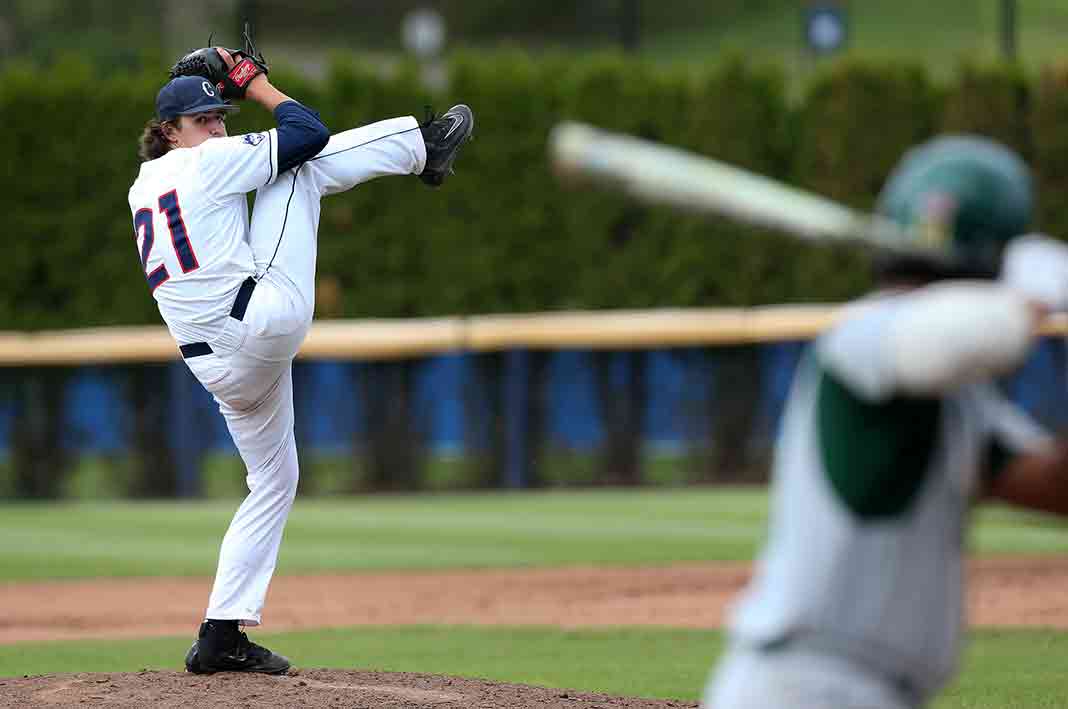
Landing back in the Ocean State meant a return to Hop’s Athletic Performance, the Coventry indoor facility where Feole spent many a day honing his pitching craft. Besides staying the course with his rehab on familiar turf, Feole has helped to renovate Hop’s.
“It’s going to look nicer and a lot better,” said Feole.
Right now, Feole is throwing five days per week. He’s graduated to the stage where he can throw off the mound. At the present time, his bullpen sessions have been strictly limited to fastballs and changeups. A few times a week, he’ll check in with members of San Diego’s training staff.
“Thank God for this new-age technology where you’re able to hop on the phone for a Zoom call and get quality work in,” said Feole.
As Feole continues to wait out the pandemic storm, he does so with a positive outlook. Eventually, baseball will be back. Eventually, he will be on a plane that takes him back to Arizona. For now, however, there’s no place like home.
“At the end of the day, I believe we’ll get the ball rolling sooner rather than later,” said Feole. “I’ll be excited to be back out there. Maybe I’ll get to face some hitters.”



